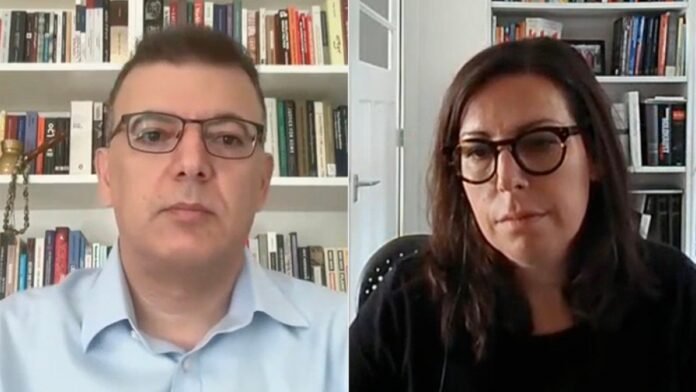Two experts talked to media about how the genocide in Gaza carries echoes of Srebrenica 30 years ago.
The raw statistics speak to the scale of the suffering in two places, separated by decades.
Israel has killed more than 58,000 Palestinians in Gaza since October 2023, many of them women and children, and injured more than 138,000.
With constant bombardment, man-made famine, and tactics like declaring a safe zone and then bombing it, experts say what Israel is doing amounts to genocide.
In the Bosnian War from 1992 to 1995, Bosnian Serb forces killed some 68,000 Bosniaks, rounding people up based on ethnicity.
On July 11, 1995, Serb fighters rounded up and killed more than 8,000 Bosniak men and boys in a United Nations-declared “safe zone” in the town of Srebrenica.
That was the only legally recognised genocide of the Bosnian War.
On the 30th anniversary of the Srebrenica genocide and as Israel’s genocidal war on Gaza continues, media spoke to Iva Vukusic, assistant professor in international history at Utrecht University, and Nimer Sultany, Palestinian legal scholar at the University of London, about the parallels between the two.
People would only be allowed to leave this “concentration zone” if they were “voluntarily emigrating” from Gaza.
“We have seen … Israeli academics, legal scholars, really objecting to this plan and calling it a manifest example of a war crime,” Vukusic explained.
“It is a concentration camp. I am sorry,” former Israeli Prime Minister said bluntly about the Katz announcement in an interview with the Guardian on Sunday.
Implied in Israel’s claim that it would secure this concentration zone from the outside, and that aid would be distributed within, is the idea that this zone will be yet another Israeli “safe zone” in its war on Gaza.
A unilaterally declared safe zone, however, does not include the external controls and mechanisms that were part of the Srebrenica safe zone 30 years ago, Vukusic pointed out. These controls included international peacekeepers as well as UN Security Council Resolution 819, declaring Srebrenica a safe area.
Safe zones that aren’t
The UN declaration of the safe zone came after thousands of Bosnians streamed into Srebrenica, seeking safety from relentless attacks by Bosnian Serb fighters acting under “Directive 7” to cut Srebrenica off from any other areas.
Hemmed in and starving, people were trapped.
In Bosnia, as in Gaza, people were forced to flee for their lives in the face of relentless violence by the attacking forces.
Israel has issued expulsion order after expulsion order, pushing people out of one part of Gaza into another, then back again. It declared certain areas as “safe zones”, then proceeded to bomb them as refugees slept in flimsy tents that Israeli bombs turned into infernos in seconds.
Displacement and its physical and psychological toll on refugees have been studied in various contexts, with scientists finding that displaced people suffer post-traumatic stress disorder (PTSD), depression, and anxiety disorders at much higher rates due to the uncertainty of displacement, the destruction of social support systems, and the inability to maintain a semblance of “normal life”.
Add to that the forced starvation Israel is imposing on Gaza, which takes a physical and mental toll, as people watch their loved ones die of malnutrition or from curable diseases that their bodies are too weak to fight.
Sultany pointed out that “forcible transfers, in which Palestinians are being forced into increasingly shrinking spaces with limited ability to survive and dire humanitarian conditions”, have been a hallmark of Israel’s war on Gaza.
Therefore, while Katz’s comments were a continuation/extension of what was already being seen on the ground, this now resembles an official plan.
“The question of forcible transfer is part of the declared objectives of the so-called Gideon’s Chariots military campaign in early May 2025 [and] it was also part of the so-called General’s Plan in northern Gaza in October till December 2024,” he clarified.
Israel’s actions in Gaza are widely documented, with daily accounts of unarmed Palestinians being shot by snipers or bombed from above.
Israel has been denounced for its indiscriminate killing of civilians, especially after investigations showed that its army had allowed itself a higher “margin of error” when it came to killing civilians in this conflict, compared to its past wars on Gaza.

